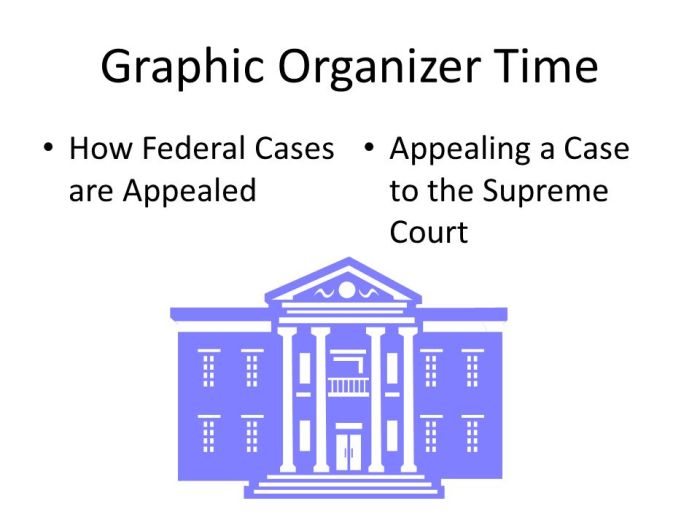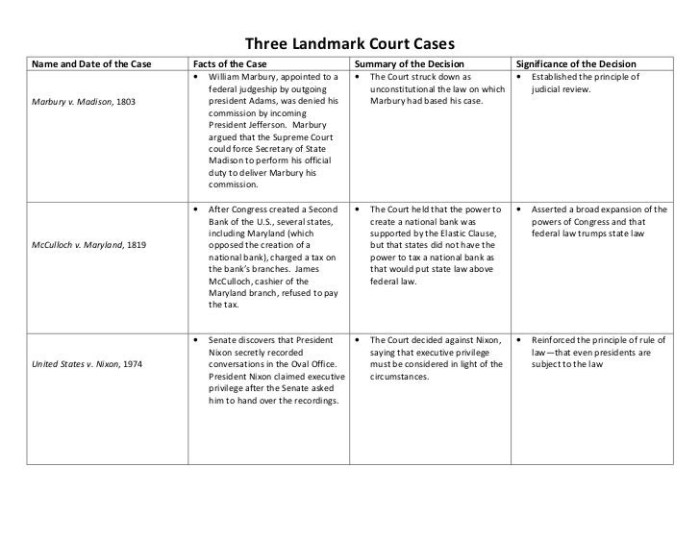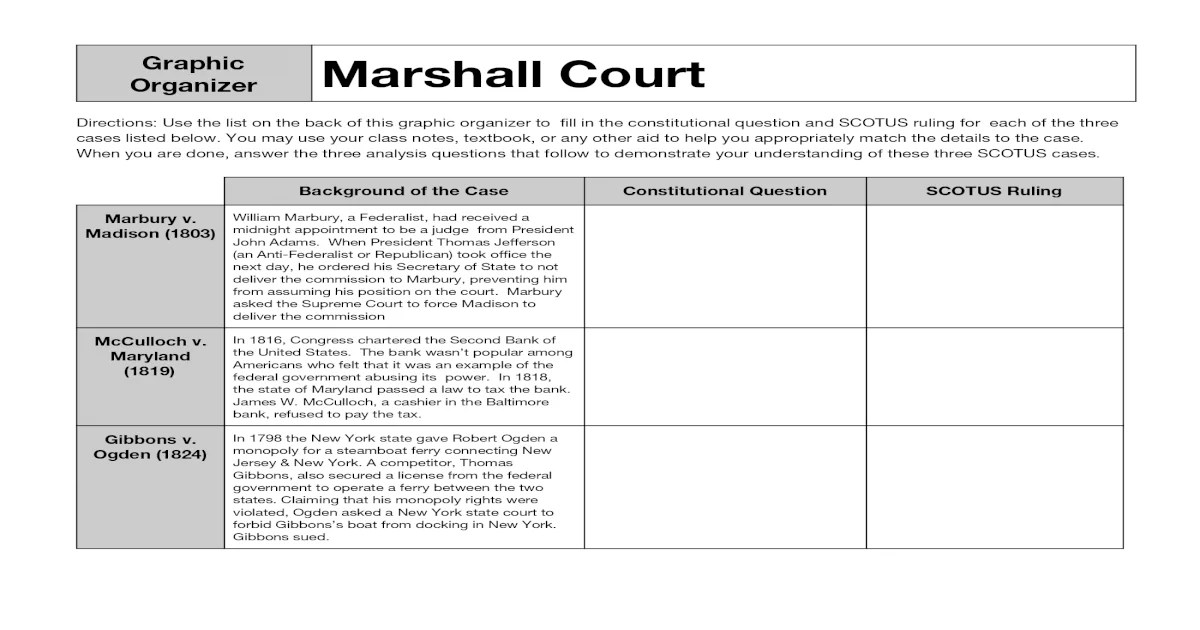Embark on a captivating journey through the Marshall Court Graphic Organizer Answer Key, a comprehensive guide to the landmark decisions that shaped the course of American law and jurisprudence. This meticulously crafted resource provides an in-depth exploration of the Marshall Court’s profound impact on the balance of power between the federal government and the states.
Delve into the intricacies of Marbury v. Madison and McCulloch v. Maryland, analyzing the legal principles established by these pivotal cases and their enduring influence on American law. Discover the legacy of John Marshall, the visionary Chief Justice whose legal philosophy continues to resonate within the American legal system.
Marshall Court

The Marshall Court, led by Chief Justice John Marshall, played a pivotal role in shaping the American legal system. Through its landmark decisions, the Court established the principle of judicial review, strengthened the federal government, and defined the relationship between the states and the national government.
Key Decisions of the Marshall Court
- Marbury v. Madison (1803): Established the principle of judicial review, giving the Supreme Court the power to declare laws unconstitutional.
- McCulloch v. Maryland (1819): Upheld the federal government’s implied powers under the Necessary and Proper Clause.
- Gibbons v. Ogden (1824): Established the federal government’s exclusive power to regulate interstate commerce.
- Fletcher v. Peck (1810): Protected contracts from state interference, strengthening property rights.
John Marshall

John Marshall served as Chief Justice of the Supreme Court from 1801 to 1835. His legal philosophy, known as “nationalism,” emphasized the supremacy of the federal government and the need for a strong national judiciary.
Marshall’s Impact, Marshall court graphic organizer answer key
- Strengthened the federal government’s power over the states.
- Established the principle of judicial review.
- Protected individual rights and property.
- Shaped the role of the Supreme Court as the ultimate interpreter of the Constitution.
Landmark Cases

The Marshall Court decided several landmark cases that had a profound impact on American law.
Marbury v. Madison
In Marbury v. Madison, the Court established the principle of judicial review, giving it the power to declare laws unconstitutional. This case solidified the role of the Supreme Court as the ultimate interpreter of the Constitution.
McCulloch v. Maryland
In McCulloch v. Maryland, the Court ruled that the federal government had implied powers beyond those explicitly stated in the Constitution. This decision strengthened the federal government’s authority and established the “necessary and proper” clause as a source of federal power.
Legacy of the Marshall Court: Marshall Court Graphic Organizer Answer Key
The Marshall Court left a lasting legacy on American law and society. Its decisions shaped the balance of power between the federal government and the states, established the principle of judicial review, and protected individual rights.
Continuing Influence
The Marshall Court’s legacy continues to influence American law and society. Its decisions are frequently cited as precedent in legal cases, and its principles of judicial review and federal supremacy remain fundamental to the American legal system.
Expert Answers
What is the significance of the Marshall Court?
The Marshall Court played a pivotal role in shaping American law by establishing the principle of judicial review, strengthening the federal government, and defining the relationship between the federal government and the states.
How did John Marshall’s legal philosophy influence American jurisprudence?
Marshall’s legal philosophy, known as “nationalism,” emphasized the supremacy of the federal government and the importance of a strong national judiciary.
What are some examples of landmark cases decided by the Marshall Court?
Landmark cases decided by the Marshall Court include Marbury v. Madison (1803), which established the principle of judicial review; McCulloch v. Maryland (1819), which upheld the implied powers of the federal government; and Gibbons v. Ogden (1824), which established the federal government’s exclusive power over interstate commerce.